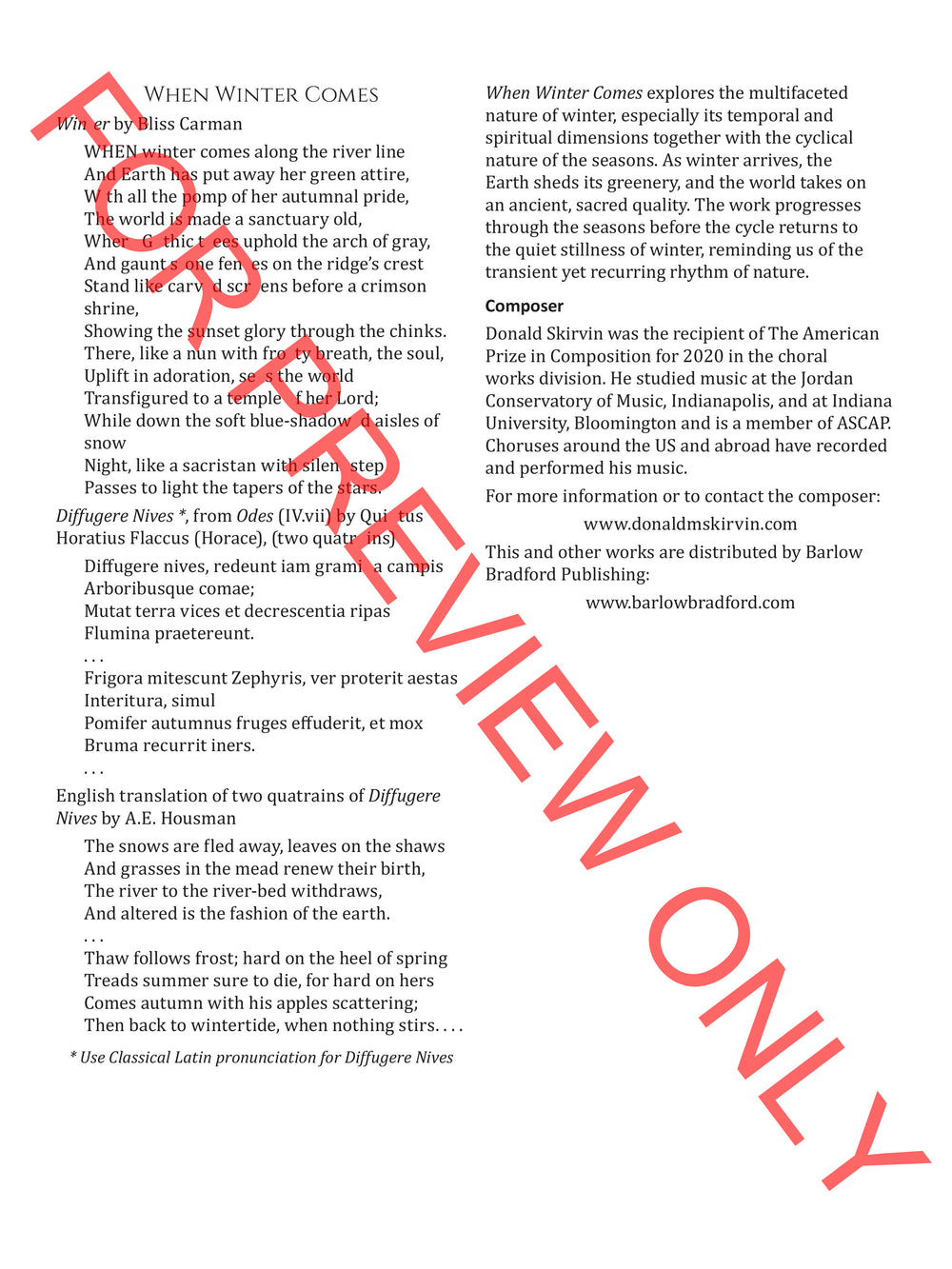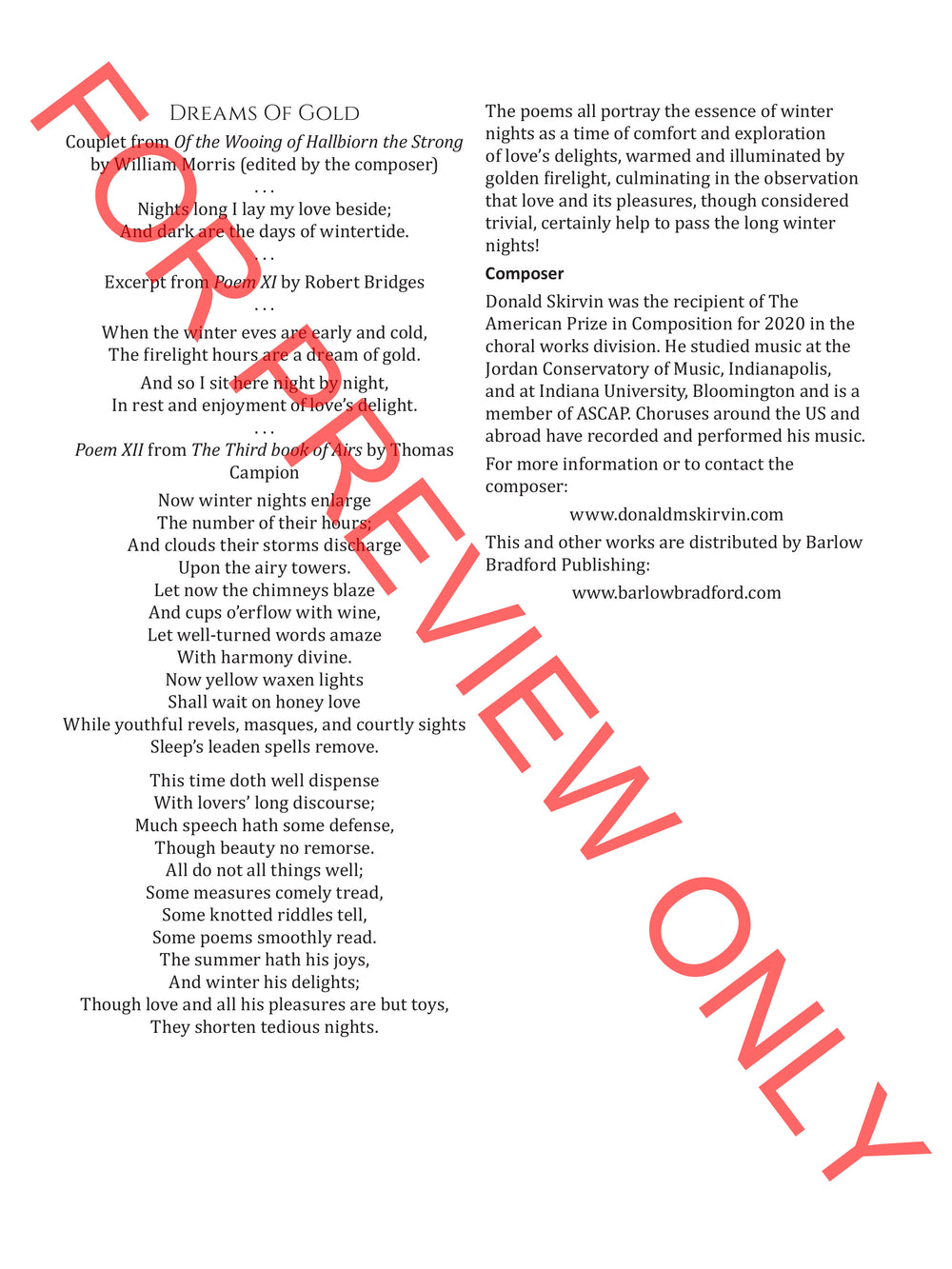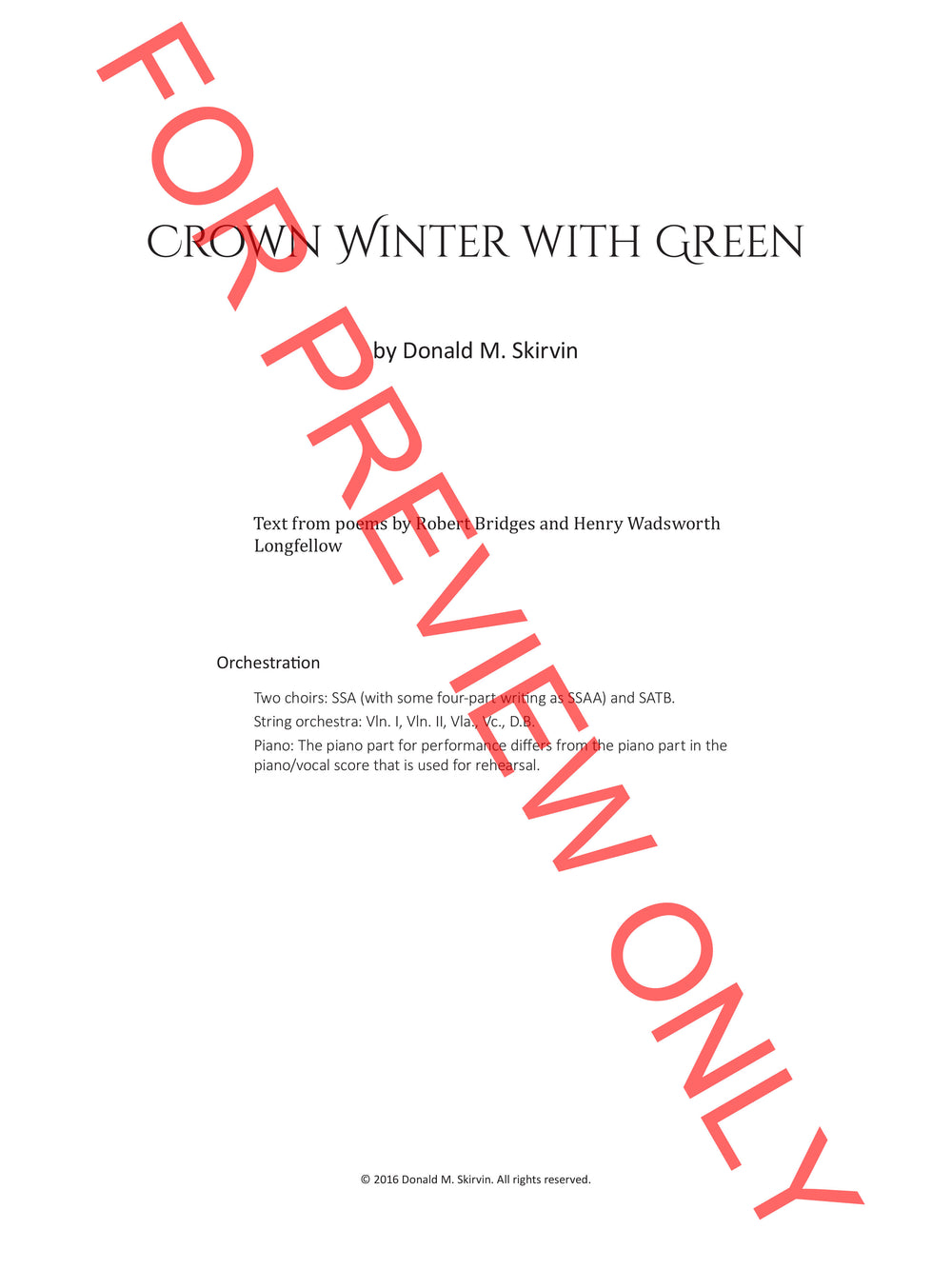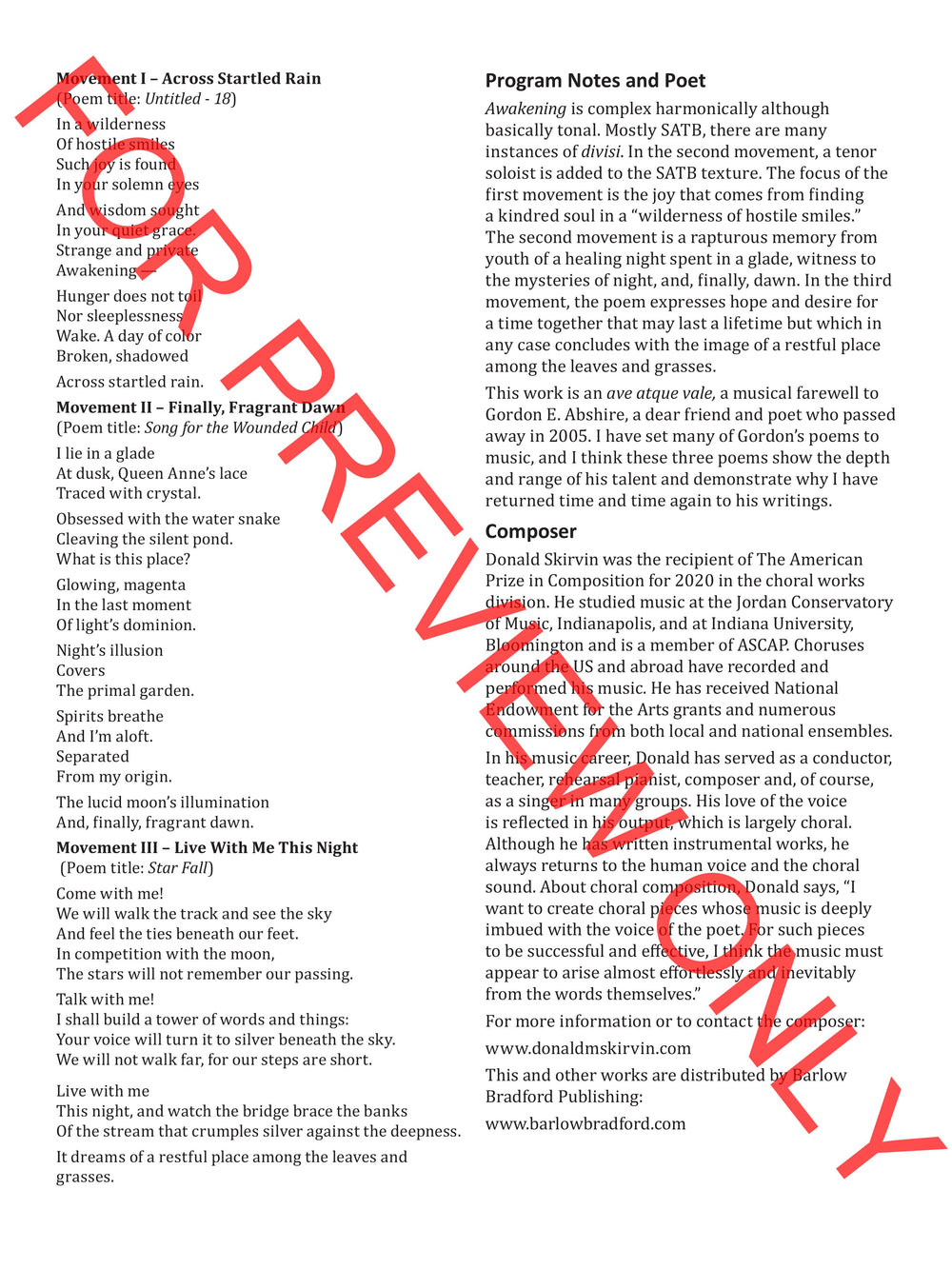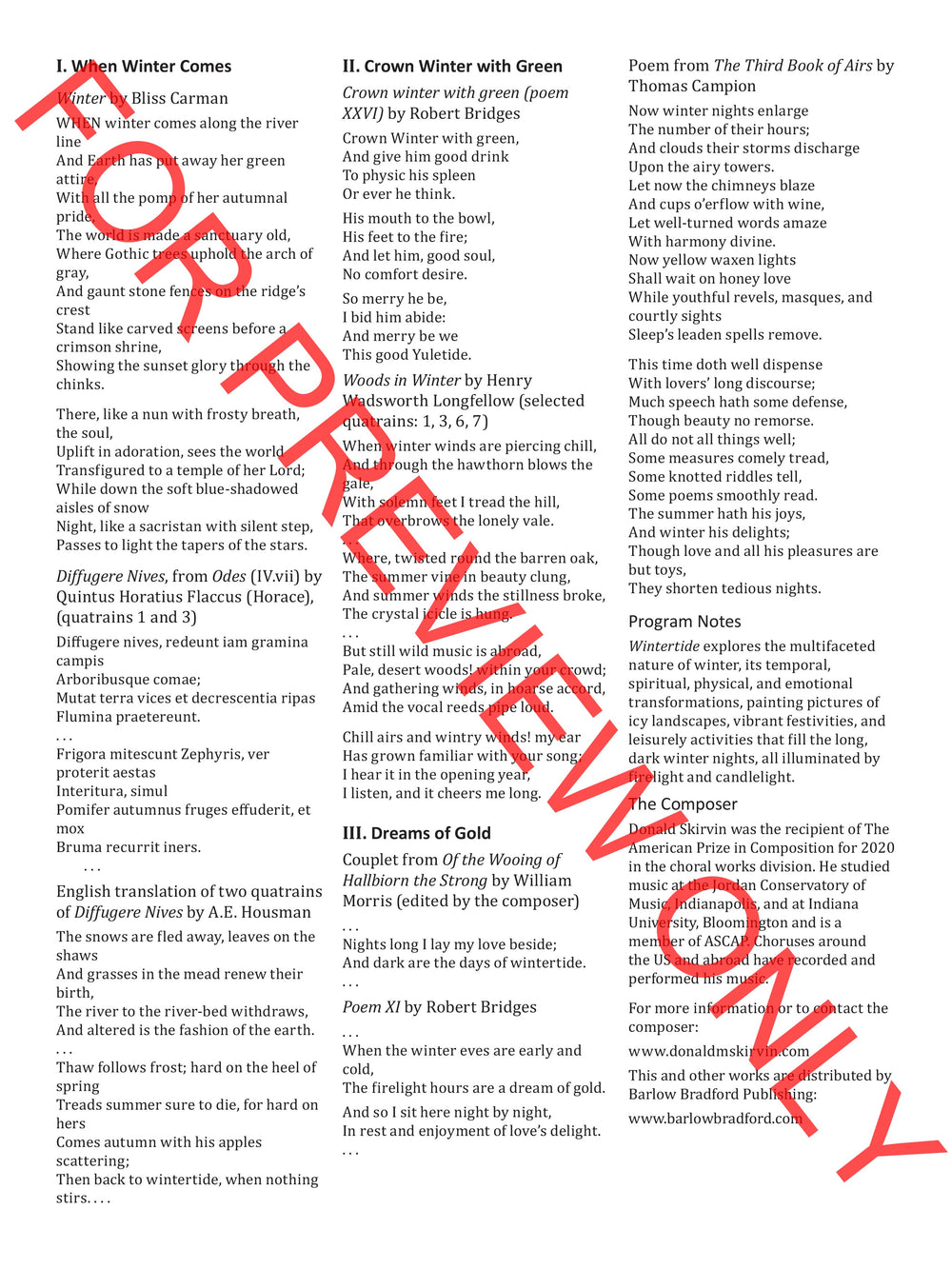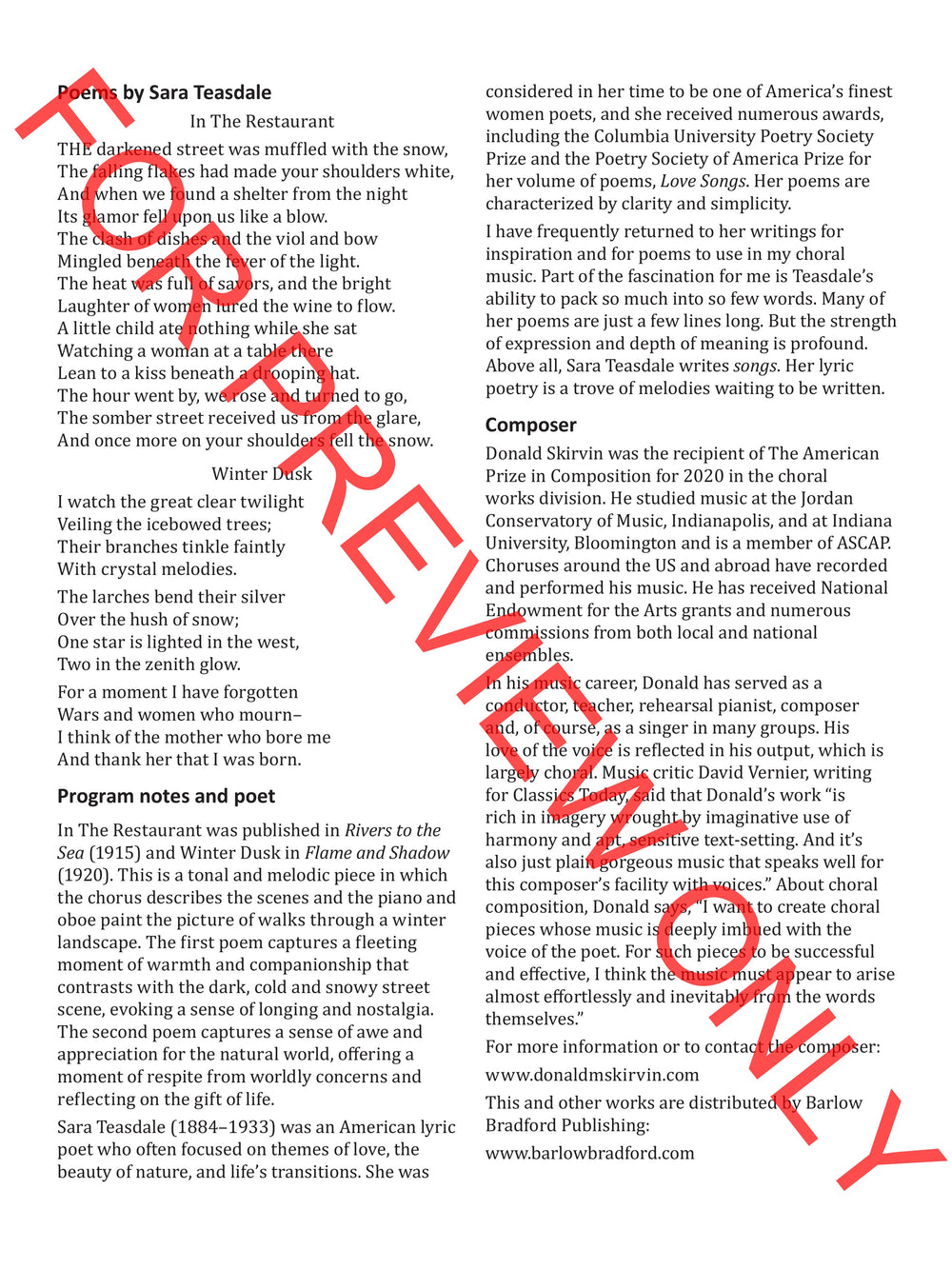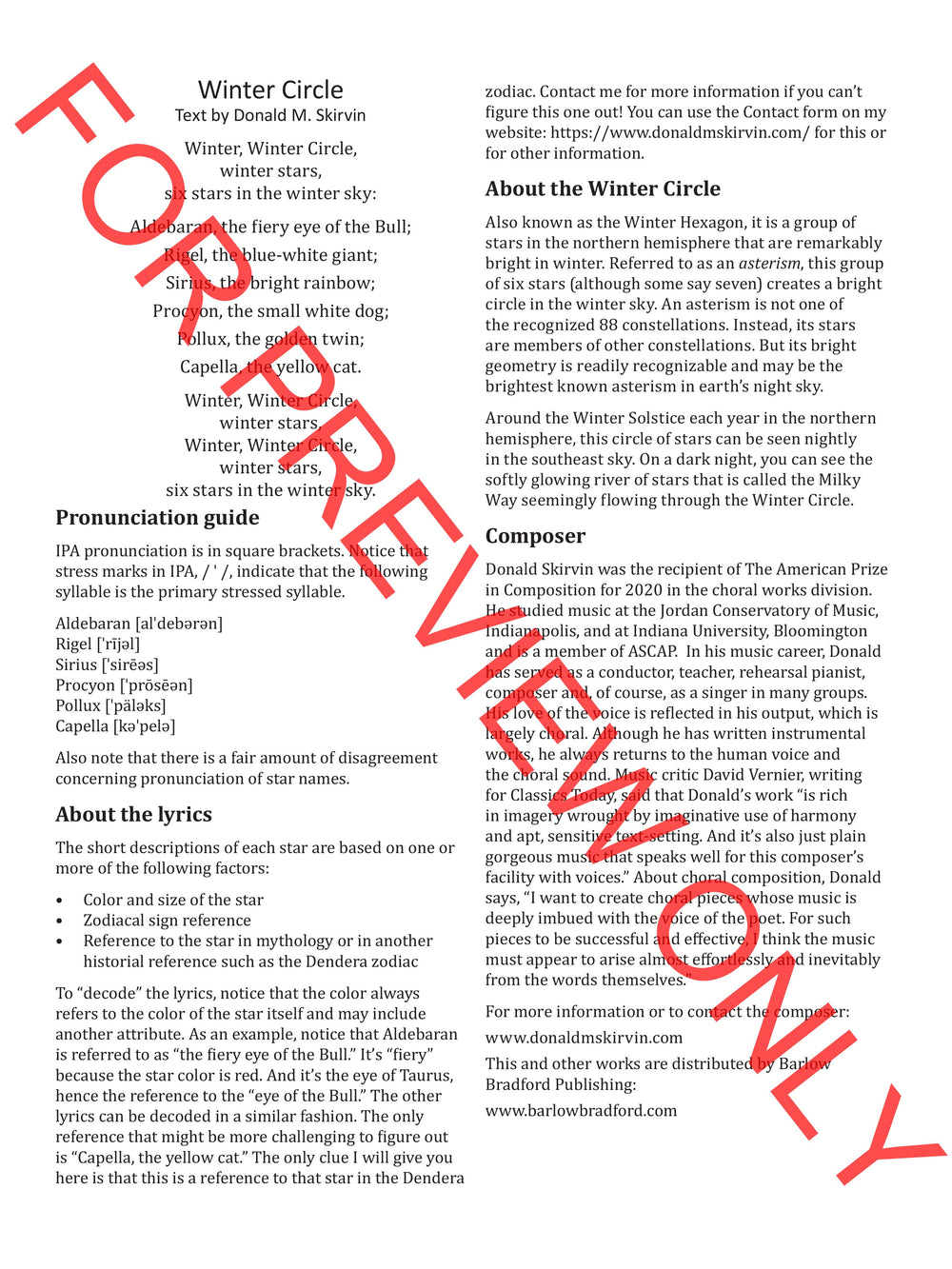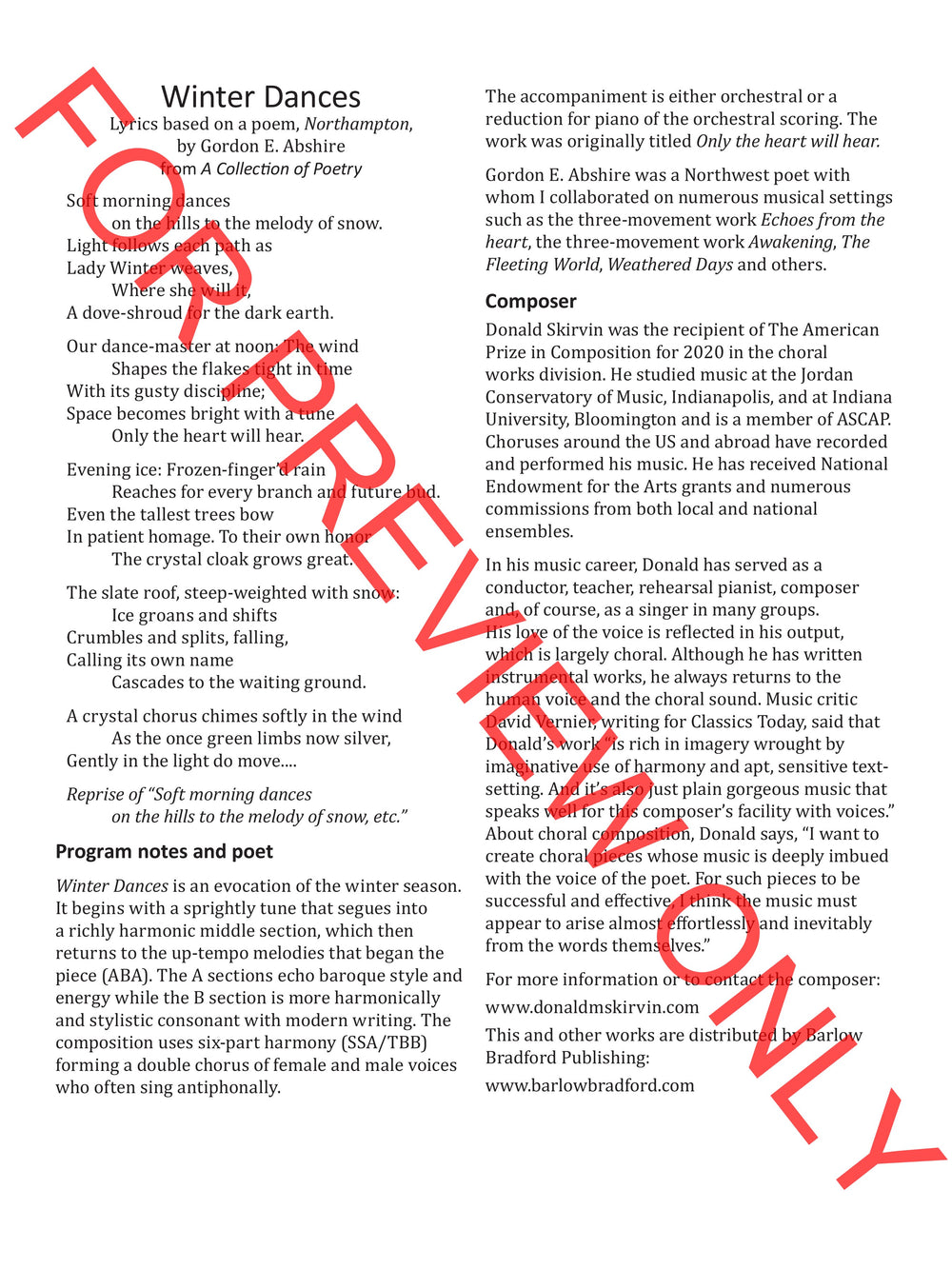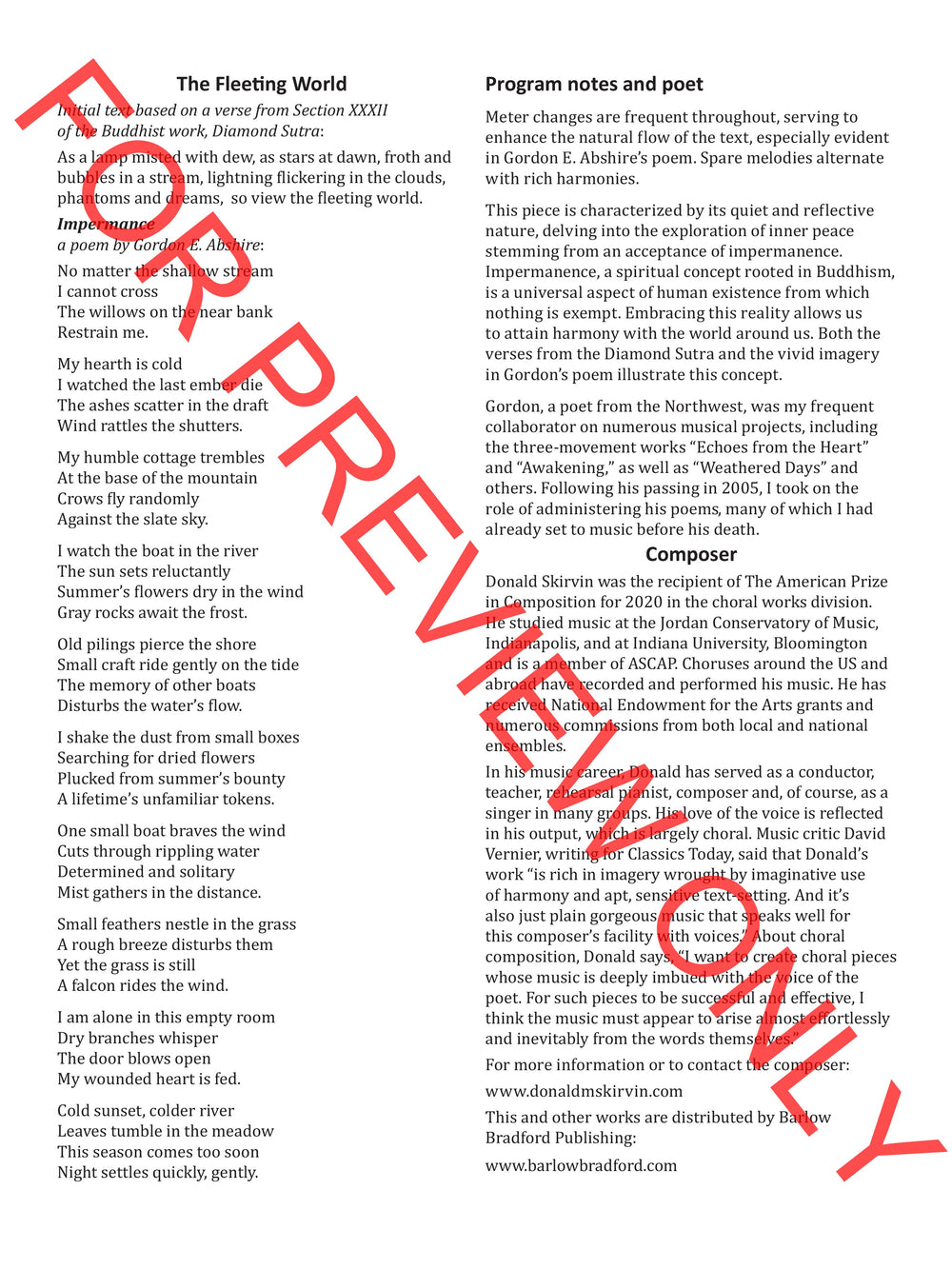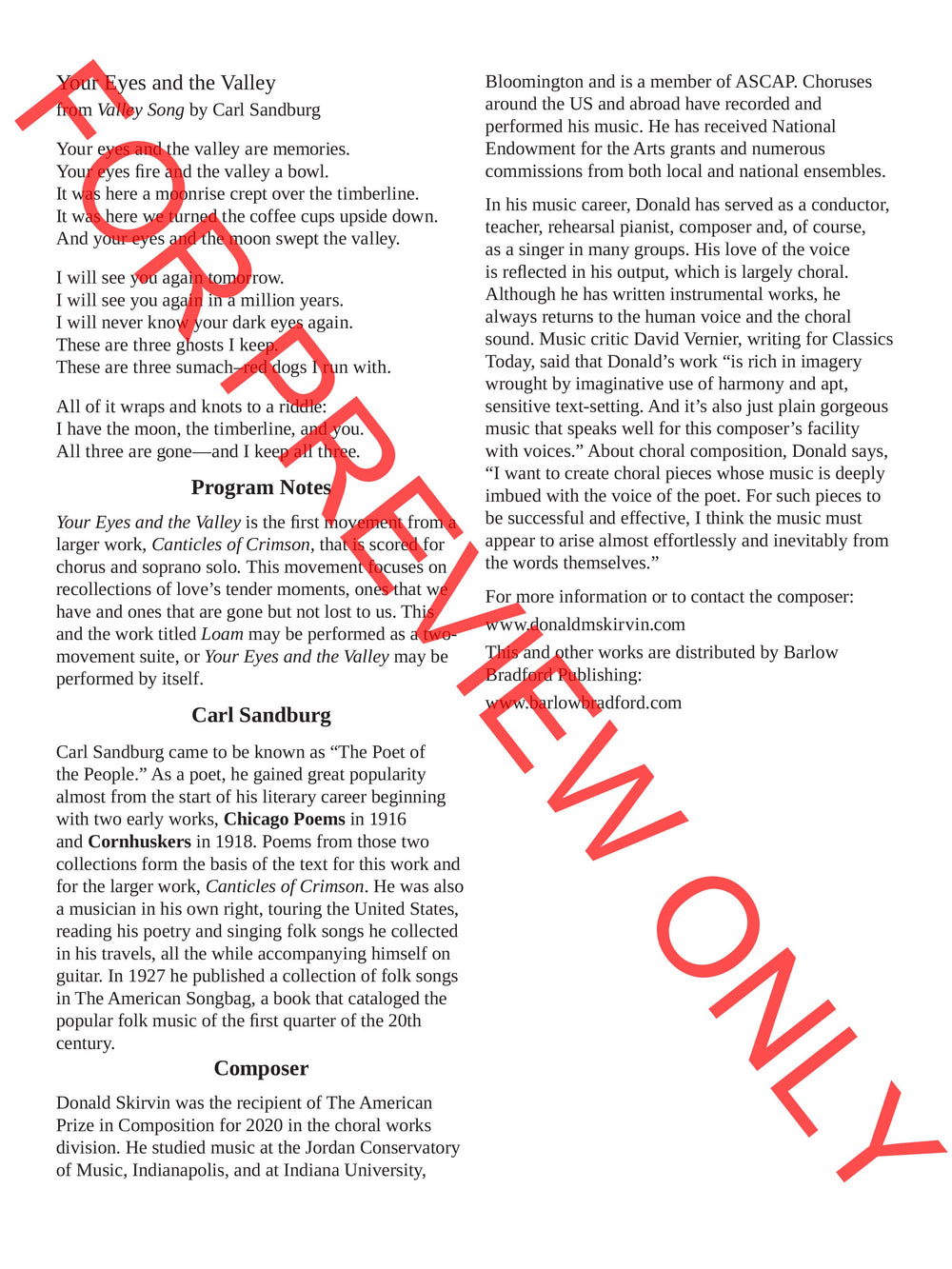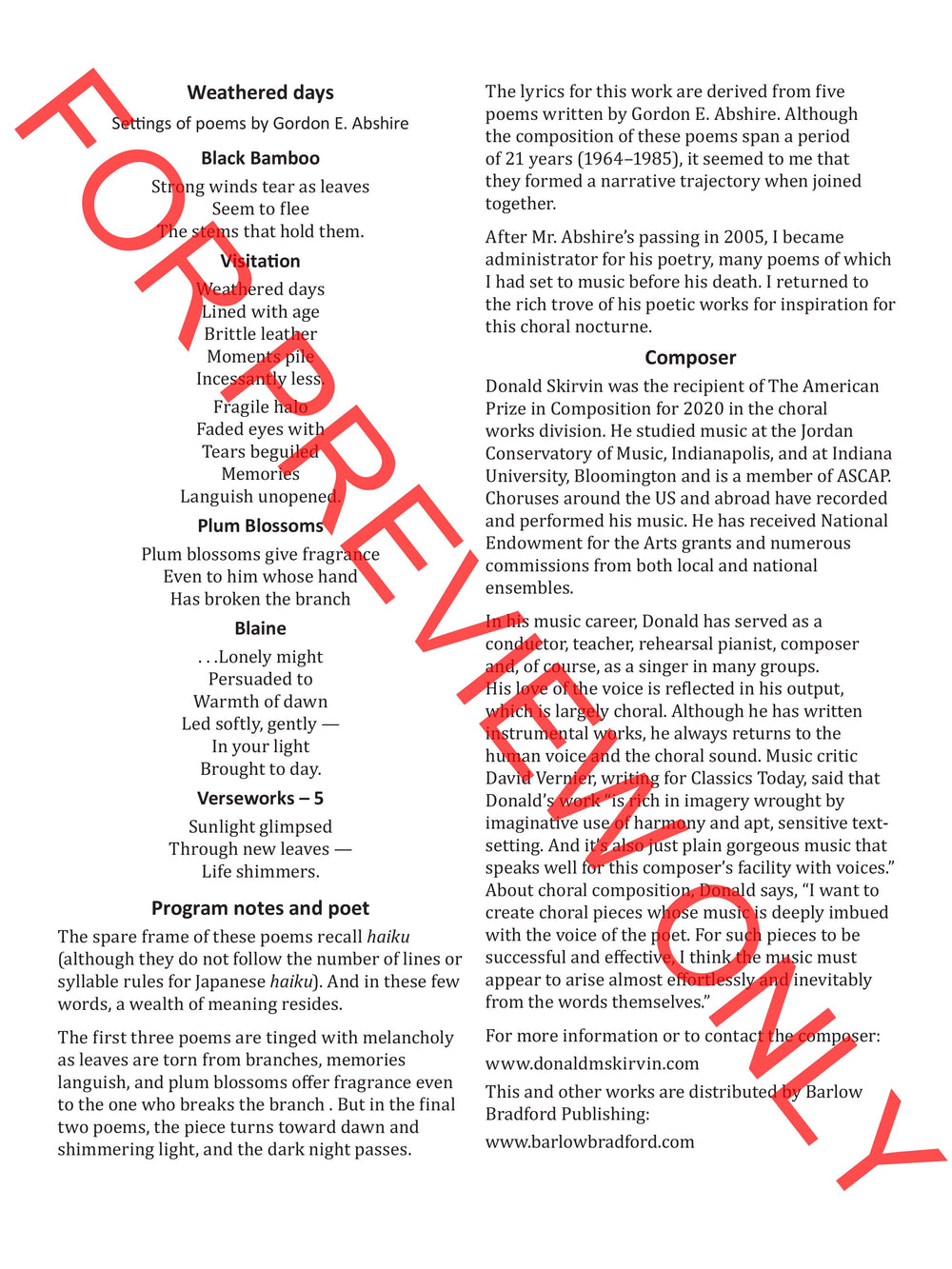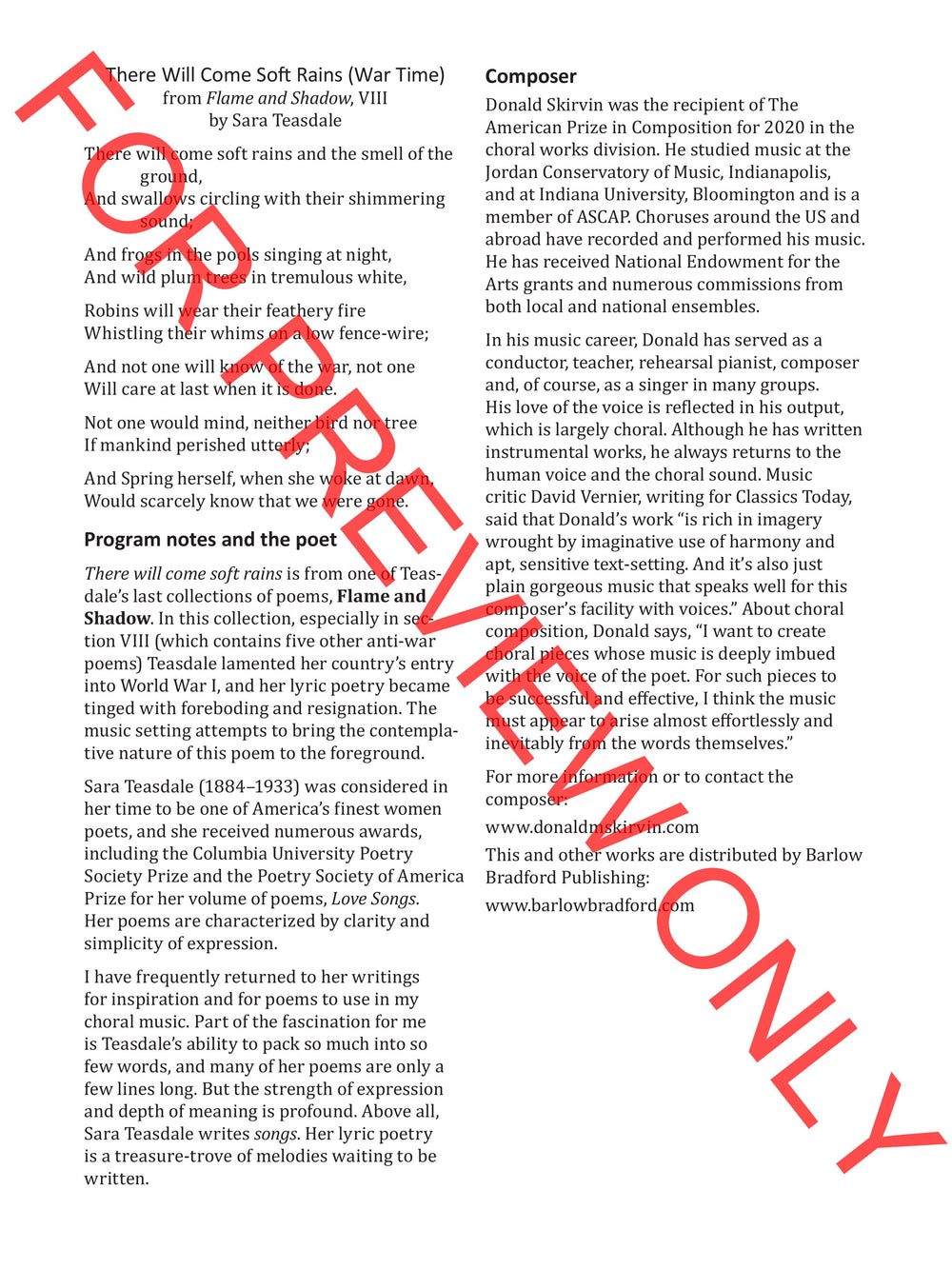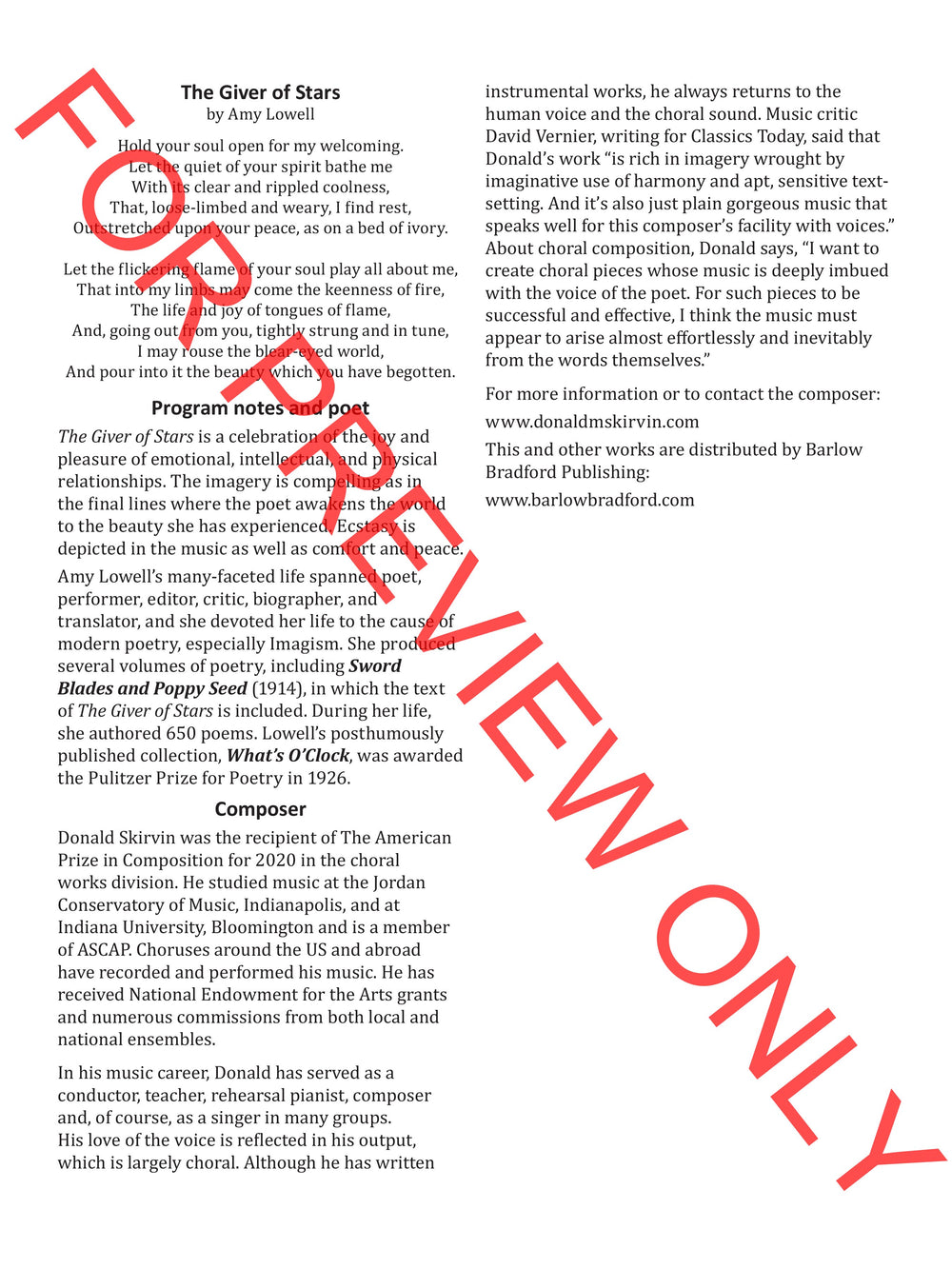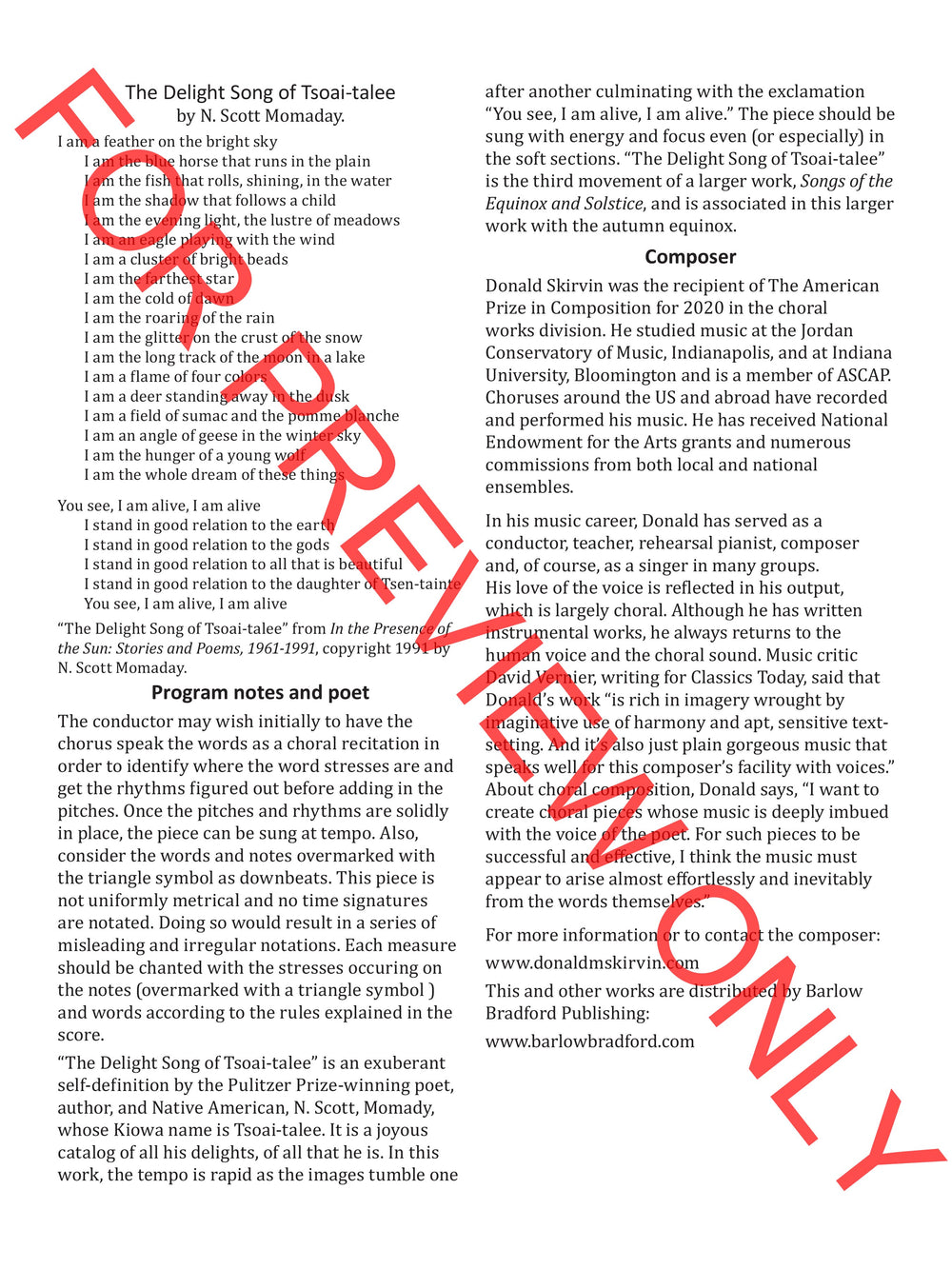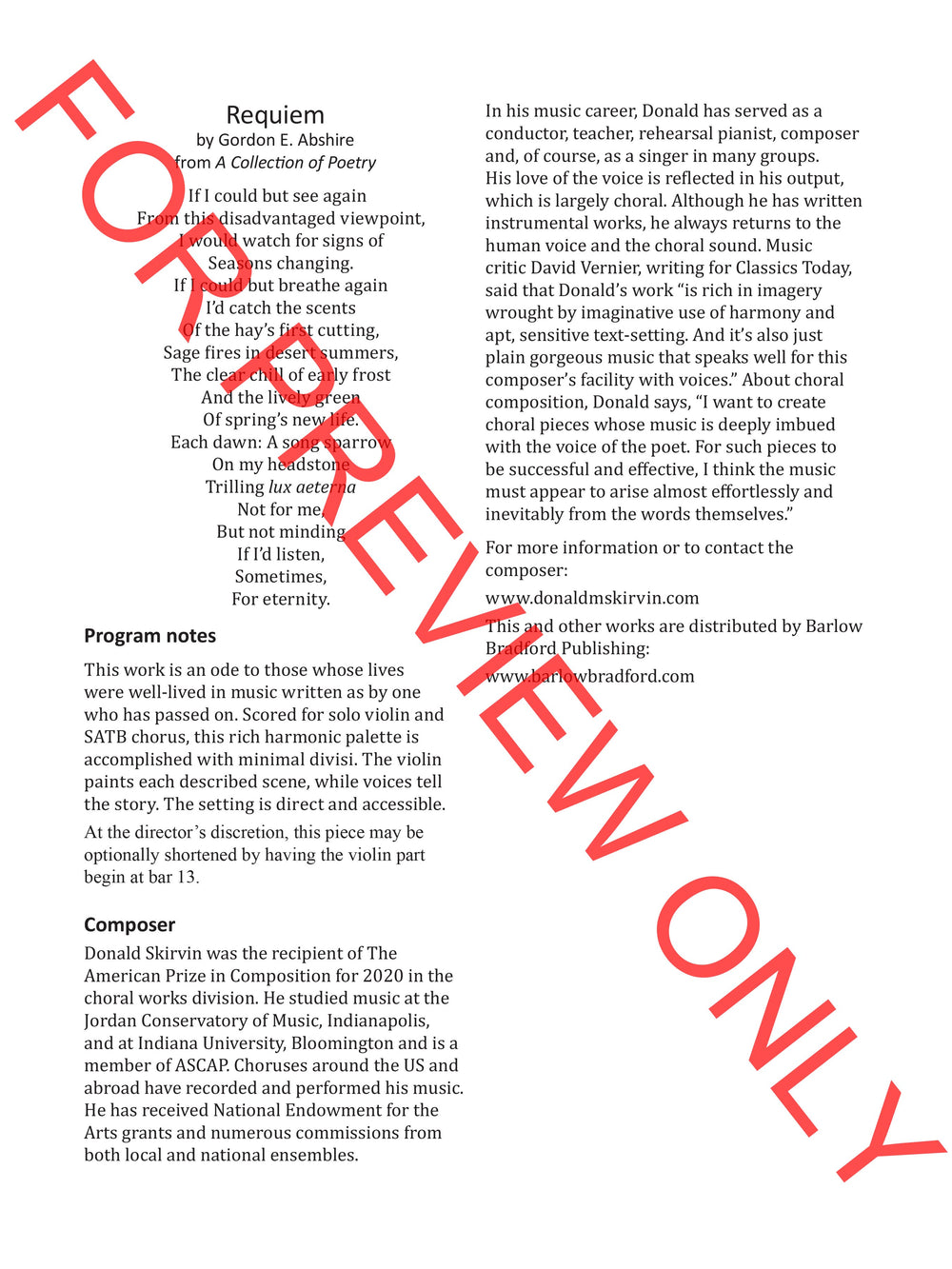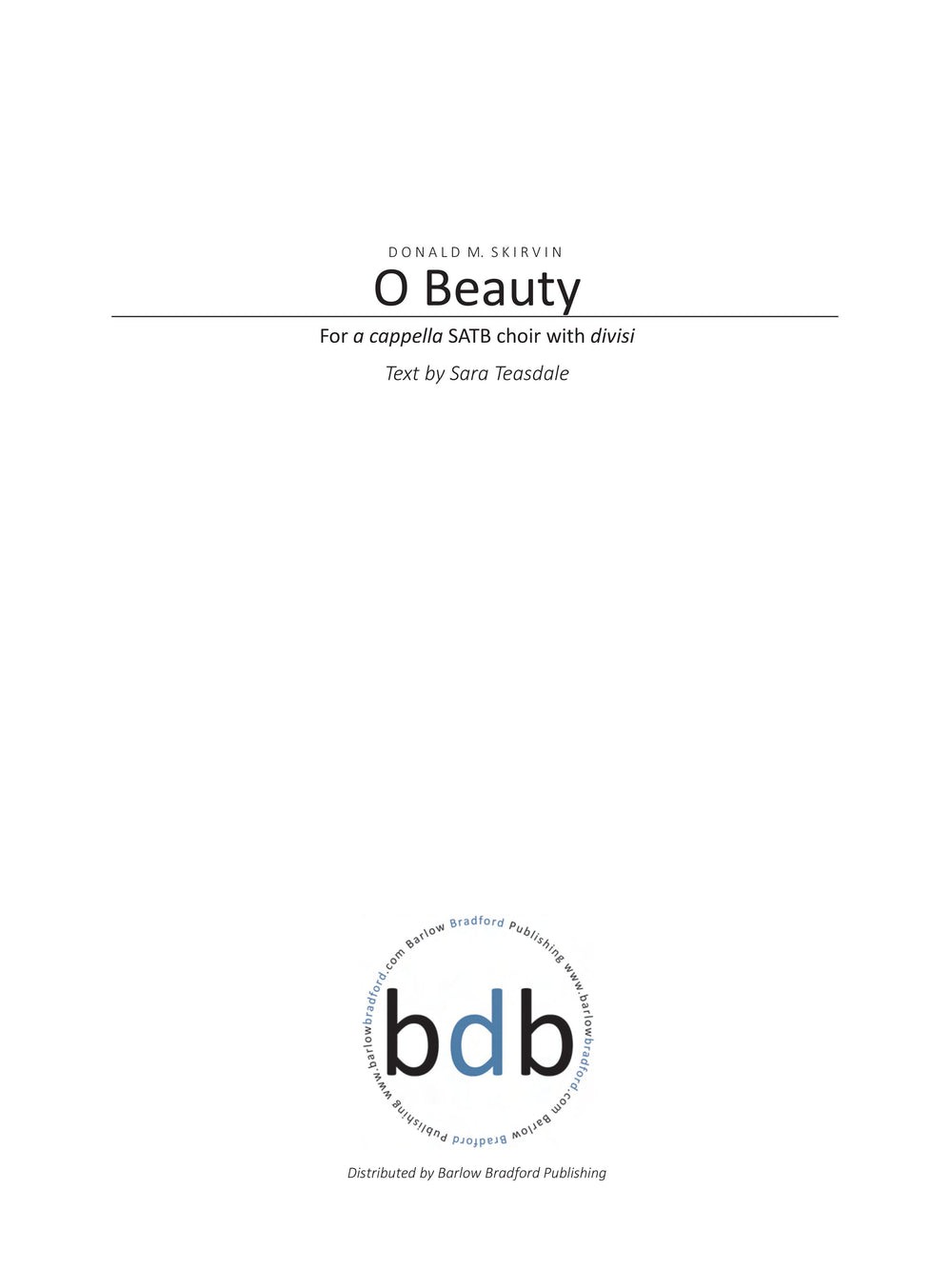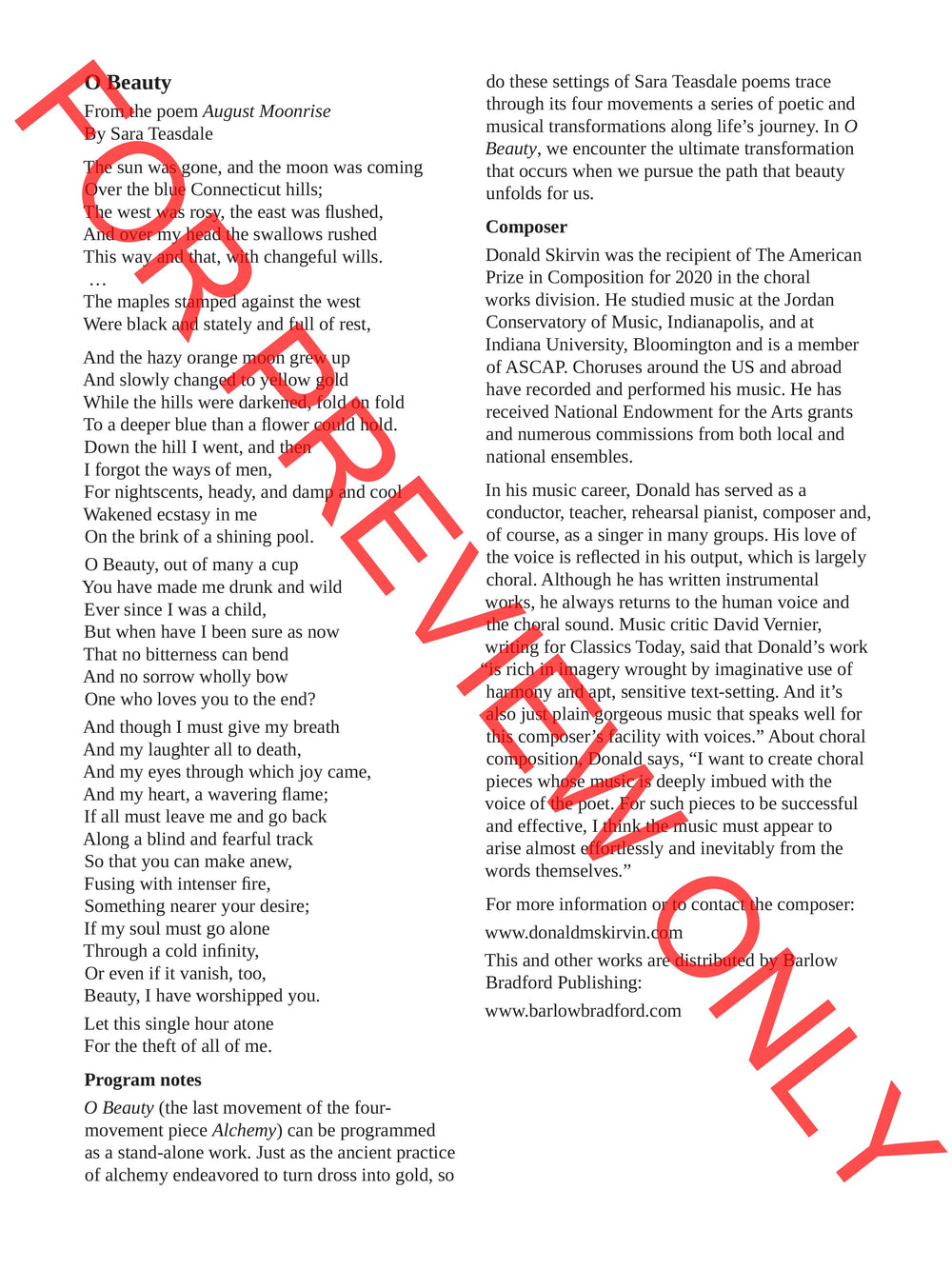Donald M. Skirvin
Donald Skirvin was a recipient of The American Prize in Composition for 2020 in the shorter choral works division. He studied music at the Jordan Conservatory of Music, Indianapolis, and at Indiana University, Bloomington. He is a member of ASCAP. In 2013 he was appointed Resident Composer Emeritus for the renowned choral ensemble The Esoterics after serving 15 years as Resident Composer for the group during which time he wrote over forty new works for them. He has received National Endowment for the Arts grants and numerous commissions from local and national ensembles.
His writing is " . . . rich in imagery wrought by imaginative use of harmony and apt, sensitive text-setting. And it’s also just plain gorgeous music that speaks well for this composer’s facility with voices.” (Critic David Vernier, Classics Today). He has been described as “… a leading voice in the contemporary choral scene" (Roger Miller, Professor Emeritus, University of Utah). Writing in the Classical-Modern Music Review, Grego Applegate Edwards says about his “Stars forever, while we sleep” on the Aeonia CD “… thoroughly evocative, tonal contemporary offerings beautifully rendered by the choral ensemble . . . Each work has warmth, beauty and a sort of searchingly poetic quality handled beautifully by (The Esoterics).” “Skirvin is a skilled and prolific composer of choral music . . . (he) excels at both expressing the texts in music and at fitting his own musical expression to the rhythm of the poetry." (Composer and conductor, Karen P. Thomas, from a review of Alchemy in Noteworthy an online column from Chorus America). Numerous compositions have been accepted into the Project:Encore catalog of contemporary choral music reviewed and endorsed by a panel of renowned conductors.
In his music career, Donald has served as a conductor, teacher, rehearsal pianist, composer and, of course, a performer in many groups. His love of the voice is reflected in his output, which is largely choral. Although he has written instrumental works, he always returns to the human voice and the choral sound. Donald says, “I want to create choral pieces whose music is deeply imbued with the voice of the poet. For such pieces to be successful and effective, I think the music must appear to arise almost effortlessly and inevitably from the words themselves.”
Some recent premieres and performances
Premieres in 2021-2023 include: Piano and SSATBB version of “Only the Heart Will Hear” (Bellevue Chamber Chorus); “All My Songs for You” a three-movement work scored for SSAA and piano (Ancora women's choir); “Lord, it is night,” a prayer setting from A New Zealand Prayer Book, scored for men’s voices and organ (The Compline Choir of St. Mark’s Cathedral, Seattle); “When All Falls Silent,” a setting of the poem of the same name by Charles Anthony Sylvestri, scored for a cappella SATB voices (Utah Chamber Artists); “Weathered Days” for SATB chorus and strings (Roane Choral Society and Oak Ridge Chorus); “Songs for Genie,” three songs that set poetry by the composer, Carl Sandburg, and William Blake, scored for unison and two-part treble voices and piano (Seattle Girls Choir); and “Sandburg Songs,” settings of poetry by Carl Sandburg in three movements, scored for SATB voices, string orchestra, and piano (Utah Chamber Artists).
Premieres in 2019 - 2020 include: “Canticles of Crimson,” a work in five movements that sets the poetry of Carl Sandburg, scored for soprano solo, chorus, and piano (Kirkland Choral Society); “Winter Peace, A Lullaby” that sets a poem by the composer, scored for SATB chorus, handbells, and piano (Loft Choir, University Unitarian Church); and “Fear No More” a setting of the threnody from Shakespeare’s play Cymbeline, scored for a cappella SATB voices (Seattle Pro Musica).
Some earlier notable premieres include: "Curve of Gold," a setting in four movements of Sara Teasdale poems scored for soprano solo, chorus, and piano (Seattle Choral Company); "Winter Scenes," a setting in four movements of poems by Bliss Carmen scored for eight-part chorus, string orchestra, and piano (Utah Chamber Artists); “Ave Maris Stella” scored for a cappella SSAA chorus (Vocalise Women’s Ensemble); “Weathered Days,” premiere of the a cappella version (Opus 7); "Wintertide," scored for double chorus, string orchestra, and piano (Seattle Choral Company and the Ancora women’s choir): this three-movement work uses texts as chronologically diverse as quatrains in Latin by the Roman poet Horace; a sixteenth-century poem by the Englishman Thomas Campion; lines from Longfellow's poem, “Woods in Winter”; and a meditation on the winter season by the Canadian poet Bliss Carman. In December 2016, The Esoterics presented an all Skirvin/Teasdale concert (TEASDALE: Across the endless spaces) featuring 18 a cappella works written for The Esoterics that included 3 premieres (“There will come soft rains,” “The Fountain,” and “Places, like music”) funded in part by an ArtsWA grant from Washington state.
Contact information




